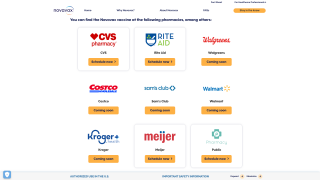Vaccine Clinical Trial Transparency Enhances Consumer Trust

From a modest start in February 2000, ClinicalTrials.gov has become a critical part of the U.S. Food and Drug Administration's (FDA) efforts to protect public health.
Making clinical trial information publicly available fulfills the FDA's commitment to research participants and also enhances public trust.
Another significant benefit is the sharing of unfavorable study results.
Before launching ClinicalTrials.gov, many (vaccine) studies went unreported in the scientific literature, leading to a biased perspective on the benefits and risks of interventions.
The FDA Amendments Act of 2007 fundamentally changed this scope because of concerns about transparency to require more types of trials to be registered, broader trial registration information, and the submission of summary results information for specific trials.
Simply put ... if a human experimental study is done and the existence of the study and the results are not publicly available, it is difficult to assert that the obligation of the researchers to contribute to generalizable knowledge has been met, wrote Robert M. Califf, M.D., Commissioner of the FDA on December 4, 2023.
In December 2023, almost half a million clinical trials were registered with ClinicalTrials.gov.
However, less than 15% appear to be applicable clinical trials (ACTs) subject to FDA oversight of registration and results information submission requirements.
Although the FDA is not tasked with enforcing the submission of results information for the more than 85% of registered trials that are not ACTs, there is an ethical obligation on the part of sponsors, trialists, and their associated institutions to make results of trials available to the public.
This obligation can be met by submitting results information to the ClinicalTrials.gov database, affirmed Dr. Califf.
The complete, unedited article is posted at this FDA link.
The U.S. NIH writes medical research involves people like you.
When you volunteer to participate in clinical research, you help doctors and researchers learn more about disease and improve health care for people in the future.
Clinical research includes all research, such as
Epidemiology, improves the understanding of a disease by studying patterns, causes, and effects of health and disease in specific groups.
Behavioral, which improves the understanding of human behavior and how it relates to health and disease.
Health services, which looks at how people access health care providers and health care services, how much care costs, and what happens to patients as a result of this care.
Clinical trials evaluate the effects of an intervention (drug or vaccine) on health outcomes.
Clinical trials are conducted in a series of steps called "phases." Each phase has a different purpose and helps researchers answer other questions.
Phase I trials: Researchers test a drug or treatment in a small group of people (20–80) for the first time. The purpose is to study the medicine or treatment to learn about safety and identify side effects.
Phase II trials: The new drug or treatment is given to a larger group of people (100–300) to determine its effectiveness and further study its safety.
Phase III trials: The new drug or treatment is given to large groups of people (1,000–3,000) to confirm its effectiveness, monitor side effects, compare it with standard or similar treatments, and collect information that will allow the new drug or treatment to be used safely.
Phase IV trials: After a drug is approved by the FDA and made available to the public, researchers track its safety in the general population, seeking more information about a drug or treatment's benefits and optimal use.
Our Trust Standards: Medical Advisory Committee
























